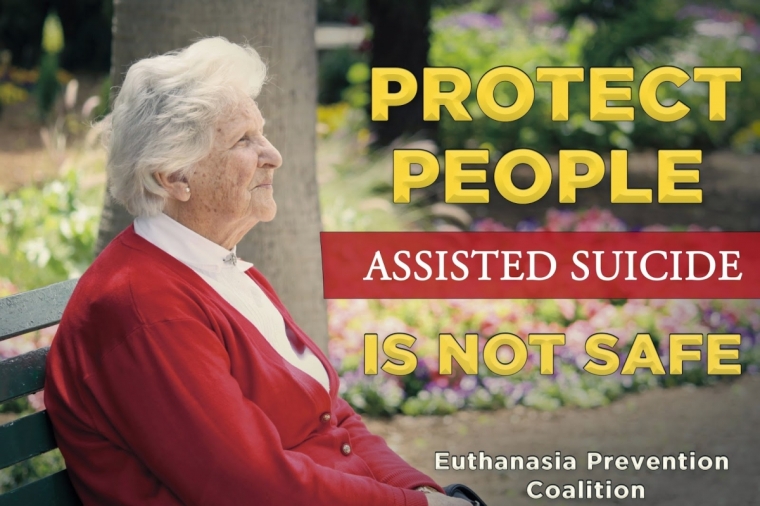All doctors in Quebec must perform assisted suicide, law says

QUEBEC CITY, Canada (Christian Examiner) – Doctors in Canada have been told they will be compelled, by law, to practice active euthanasia -- even when end-of-life care may be ill-defined -- and are being provided kits that can cause a coma and stop a human from breathing in order to comply with the law.
In June, Quebec passed Bill 52, an act respecting end-of-life care, which stipulates, among other things, that doctors will have no choice when it comes to practicing euthanasia.
Alex Schadenberg, director of the Euthanasia Prevention Coalition (EPC), told OneNewsNow: "The government of Quebec, which is planning to impose euthanasia upon its people starting on December 10, has basically told the doctors, 'You will do it.'"
Schadenberg continued, "This is a very concerning situation because they're not saying to the doctors, 'Oh, we will send somebody' ... No, they're saying, 'You will do this. This will be done. This is the law. If someone asks for it, you will carry it out.'"
Bill 52 has caused considerable concern amongst health practitioners, not only because of its requirement that doctors provide euthanasia but also because of its vague definition of who qualifies for euthanasia, which many believe will lead to abuse of the law.
EUTHANASIA KITS
Quebec is now circulating literature among health care providers concerning euthanasia "kits," which are ordered by a doctor and filled by a pharmacist. They contain three medicines, one to alleviate anxiety, one to cause a coma, and a third to stop breathing.
The kit is always to contain two doses in case a second attempt is needed.
In a post on the EPC blog, Schadenberg wrote, "Giving doctors the right, in law, to cause the death of their patients will never be safe."
Schadenberg cited several situations in Belgium and the Netherlands, where assisted suicide is legal, in which healthy, depressed people were wrongly helped to die by doctors. "There will always be people who will abuse the power to cause death and there will always be more reasons to cause death," he wrote.
The law risks abuse by doctors, by those who may wish to die because of a mental illness, and those who are susceptible to pressure from family or loved ones, such as the elderly, disabled, or impoverished.
"The fact that very few people ask for euthanasia based on physical suffering, and even in those cases the pain can be mitigated, should give us hope that no one actually needs to die in this way," Schadenberg pointed out.
HOSPICE CARE FUNDING CUT
What makes this situation even more dangerous for doctors and patients is that hospice care facilities that don't want to offer euthanasia may receive retaliatory funding cuts.
Teresa Dellar, West Island Palliative Care Residence's co-founder and executive director, told CBC News she believed most terminal Canadians did not want euthanasia just as most Canadian doctors did not want to offer it.
A factor in patients' decision is their access to palliative care. "Presently palliative care is only available to between 16 to 30 percent of the Canadian population," Dellar said.
West Island Palliative Care Residence has declined to offer assisted suicide. "I think when 100 percent of Canadians have access to palliative care, then we can talk about other issues with end of life," Dellar said. "But right now I think we need to focus on palliative care resources."
Yet these resources might be cut further in favor of euthanasia.
Schadenberg told OneNewsNow the Canadian government has said it "will lessen the funding ... to palliative care centers who refuse to participate" in the euthanasia program.
Schadenberg put it bluntly: "So therefore when your mother or your father is needing good care as they're nearing death, these doctors and nurses who are providing good care will have a tighter budget because they refuse to kill your mother or your father."
This legal requirement of doctors to participate in euthanasia, which critics consider coercion, is province-wide. Under the new law, every institution is required to adopt an end-of-life care policy compliant with the bill.
RELATED ARTICLES:
'Life: It's not for me,' says healthy 24-year-old Belgium scheduled to die by euthanasia this summer
Netherlands pediatrician seeks to euthanize children under 12
French court hands down final death sentence in Terri Schiavo-like case
Dr. Death would be proud: New York considers physician-assisted suicide law